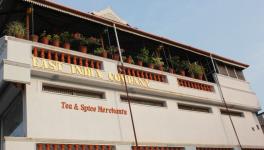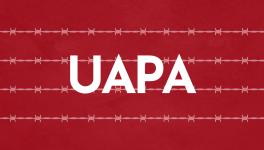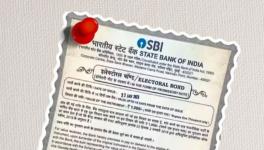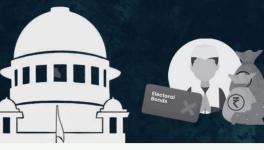Adani Letters Rogatory Judgment: Why Finance Ministry Must Appeal

Image Courtesy: Live Mint
On October 17, the Bombay High Court ruled in favour of a company in the Adani Group by passing an order quashing the issuance of letters rogatory (LRs) to various foreign government bodies by the Directorate of Revenue Intelligence (DRI), the investigative arm of India’s Customs authorities. The LRs—that are formal requests for information issued by Indian courts on behalf of the country’s law-enforcing and investigative agencies to courts in foreign jurisdictions to facilitate the gathering of information on individuals and entities located outside India—were issued in connection with the DRI’s investigation into the coal import scandal involving an amount of Rs 29,000 crore.
The high court in Mumbai accepted the arguments proffered by lawyers representing Adani Enterprises Limited (AEL) that the DRI did not have the legal authority under the Customs Act and the Criminal Procedure Code (CrPC) to issue the LRs. This decision threatens not only to shut down the DRI’s investigations into AEL, but may also affect a number of other ongoing investigations by government agencies such as the Enforcement Directorate (ED), the Income Tax (IT) Department, the Serious Fraud Investigation Office (SFIO) in the Ministry of Corporate Affairs, besides the DRI.
It is essential that the Department of Revenue in the Ministry of Finance appeals the high court’s decision before the Supreme Court.
Background to Coal Over-Invoicing Cases
Since 2009, the DRI has been probing allegations that a number of private and public sector companies that imported coal from Indonesia to sell to thermal power plants in the country deliberately over-valued the imported coal. By over-invoicing imported coal, these companies generating power were apparently able to claim inflated electricity tariffs from consumers. On December 14, 2014, it was reported for the first time that the directorate had conducted search-and-seizure raids at over 80 locations across India (including in the premises of power generation companies, shipping companies, firms of trading intermediaries and coal testing laboratories) to seek evidence that would establish the “true” prices of coal that had been imported from Indonesia.
In March 2016, a “general alert circular” was issued by the DRI to over 50 Customs establishments at ports across the country detailing the modus operandi of the alleged scandal involving 40 companies. The directorate’s investigation into what it called “trade based money laundering” was first revealed by one of these authors writing in the Economic and Political Weekly in April 2016.
Annexed to the circular were names of companies that were allegedly involved in not just over-invoicing imported coal, but equipment for generating electricity as well. The names included firms in some of India’s biggest private corporate houses, such as the Adani Group headed by Gautam Adani (one of the country’s richest men), the Ruia family-promoted Essar Group, the Anil Dhirubhai Ambani Group, Sajjan Jindal’s JSW Steel Group, the Hyderabad-based NSL Group promoted by M Venkataramaiah and M Prabhakar Rao and India Cements headed by N Srinivasan. Besides these private firms, the list included major public sector companies like NTPC Limited (formerly National Thermal Power Corporation Limited), MMTC Limited (formerly Metals and Minerals Trading Corporation Limited) and the power companies owned by the Tamil Nadu and Karnataka state governments.
According to the DRI circular, the companies were shipping coal directly from Indonesian ports to India but the supplier’s invoices were “routed through one or more intermediary invoicing agents based in a third country... (that) artificially inflated its landing value.” “The inflated invoices received in India were found to have been issued by intermediary invoicing agents based in Singapore, Dubai, Hong Kong, British Virgin Islands etc. These intermediary firms appear to be either subsidiary companies of Indian importers or their front companies,” the circular added.
The circular elaborated that the “true” export value of Indonesian coal could be found out by examining a document called “Form A-I”, which importers submitted in order to avail duty exemption that was available to them under the terms of a free trade agreement signed by India with Indonesia and a number of other countries. However, the DRI circular claimed that in certain cases, importers desisted from claiming duty exemption in order to avoid submitting the A-I form at the time of import; whereas, others submitted photocopies with particular portions “masked/obliterated” so that Customs officials at the port of import would not be able to ascertain the true value of the coal imported.
Most significantly, the DRI unearthed documents relating to the imports that had not been submitted to the Customs authorities. The agency found two layers of contracts—between Indonesian suppliers and intermediary companies or subsidiaries of Indian companies, and between the intermediaries/subsidiaries and the Indian importers, which specified different qualities of coal to be supplied and accordingly, had different price points.
Additionally, the circular alleged that in a “significant number of cases”, the DRI had unearthed two sets of test reports created by two different sets of testing agencies—whereby the quality of coal (which is measured in terms of GCV or “gross calorific value”) had been inflated from one report to the other, and the reports with inflated values had been submitted to the Indian Customs authorities. The two sets of test reports were said to be aligned with the specifications laid down in the two layers of contracts separating the Indonesian supplier and the Indian importer.
Also read: Coal Import Scam: Adani Company Is Trying to Impede Investigation, DRI Tells Bombay HC
As its investigations proceeded, the DRI realised it would need further documentation from the foreign branches of Indian banks, namely, ICICI Bank, Axis Bank, Bank of Baroda (BoB) and, most importantly, the State Bank of India (SBI) through which over 90% of the transactions had taken place. While the two private banks, ICICI Bank and Axis Bank, readily complied with the DRI’s requests and handed over the information requested for, the two public sector banks, SBI and the BoB, declined. This is where the story that ultimately resulted in the October 17 Bombay High Court ruling starts.
Intransigent SBI and BoB
By the middle of 2016, it had become clear that the DRI was facing hurdles in its investigations. In a report published in India Today, it was revealed that officials in the two public sector banks had refused to submit to the DRI documents from their overseas branches in Singapore and Dubai, citing banking secrecy laws in the respective countries, despite direct requests from the then Revenue Secretary Hasmukh Adhia. In a subsequent report, a DRI official was quoted as saying that there was an “invisible outside hand” interfering in the probe. It was suggested that the DRI was willing to take official action against the concerned bank officials.
NewsClick understands that the information was not being shared despite it being available in India in the servers of the two banks that are located in the country.
Seeking to overcome their intransigence, the DRI got LRs issued to Singapore, the United Arab Emirates, Hong Kong, and the British Virgin Islands, calling for courts in these countries to facilitate the process of obtaining the required documents from the respective branches of SBI and BoB under their jurisdictions.
AEL, though, had other plans. In August 2017, The Indian Express reported that in at least one instance, a company in the Adani Group had moved a Singapore court in an attempt to block the release of information via the LR route. Its efforts were not successful. In the same month, it was reported that the Singapore High Court had ruled against Adani Global Pte Limited seeking a stay on the demand of a lower court in Singapore that the company produce documents relating to the group’s coal imports from Indonesia. While it appealed before the Singapore High Court’s Court of Appeal (equivalent to that country’s apex court), at this juncture, AE—the Adani group’s flagship company—decided to approach the Bombay High Court to quash the LRs themselves.
Understanding Bombay High Court Order
AEL’s principal argument before the court was that the DRI’s investigation had been illegally commenced, and that, therefore, it had no power to issue the LRs in question which deserved to be quashed. More specifically, AEL argued that the offence alleged by the DRI is classified as non-cognisable under the Customs Act and under that Act, duty evasion of over Rs 50 lakh, and import of prohibited goods are considered cognisable offences. In the case of such offences, the law enforcement agencies may arrest individuals without a warrant while all other offences are non-cognisable and therefore, require a warrant for arrest. Since the allegation against AEL was that of over-invoicing, the question of duty evasion did not arise, and the DRI was alleging an offence of misdeclaration of value which, under the Customs Act, is a non-cognisable offence.
With this being the case, AEL argued, following the CrPC, the DRI could only conduct its investigations after obtaining an order by an officer of the rank of magistrate. In this case, such an official would be the Commissioner of Customs. AEL argued that since the DRI had not secured any such order to investigate the company, the DRI had no power to request the issuance of an LR by a court. Hence, the LRs that had been issued by the Additional Chief Metropolitan Magistrate of the 8th Court in Mumbai to the authorities in Singapore, Hong Kong, the UAE and British Virgin Islands at the DRI’s request, were the product of an illegally commenced investigation and deserved to be struck down.
Also read: Supreme Court to Look Into Adani’s ‘Coal Import Scam’
Countering the arguments of AEL’s lawyer, the DRI argued that the Customs Act is a self-contained law specifying the procedure of investigation that is bound to be followed and which also specifies the circumstances under which a magistrate’s permission is required. Therefore, the DRI argued, the requirement that it obtain an order from an officer of the rank of Commissioner of Customs to investigate AEL, did not hold.
Additionally, the DRI argued that Section 166A of the CrPC, which specifies the procedure for an investigating authority to request a court to issue an LR, contains a clause that ensures investigations under procedures other than the ones specified in the Code. In this case, the DRI contended that an investigation under the procedures specified in the Customs Act does not require that the other sections of the Code be followed, including Section 155 that requires a magistrate’s order to investigate a non-cognisable offence.
In a 78-page-long order, Justices Ranjit More and Bharati Dangre of the Bombay High Court came down on the side of the Adani Group company. First, it determined that the Customs Act “does not lay down any set of procedure for dealing with the information received by the Customs Officer for proceeding under the provisions of the Act.” In the absence of such procedures, the bench determined that “the respective provisions in the Code relating to dealing with the information requiring an inquiry/investigation into the offences classified as cognisable/non-cognisable shall necessarily follow”.
Hence, the bench decided that in these circumstances, a “valid investigation cannot be said to have commenced and continued and therefore, recourse to Section 166A (to issue an LR) without obtaining the necessary permission in respect of an investigation of a non-cognisable offence, cannot be justified”. Concluding that “Section 166A is not an independent island on which any investigating/inquiring authority can jump on without taking recourse to Section(s) 154/155,” that is, without following the procedures inscribed in the CrPC to start an investigation, the court struck down the LRs.
Consequences And Questions
The order has created an unusual quandary for India’s investigation agencies. So far, the DRI’s position has been that since the Customs Act is a special code, a Customs officer while dealing with cognisable or non-cognisable offences does not require any sanction from a magistrate. In fact, investigating officers of agencies operating under such special acts, such as Customs Act as well as the Prevention of Money Laundering Act, the Foreign Exchange Management Act, and some other laws, were considered not to have the power to file FIRs or approach magistrates as a police officer can, since under the acts, no such provisions existed.
As a result, prior to this order, law-enforcing and investigative agencies such as the DRI, the ED, the SFIO and the IT Department were routinely able to ensure the issuance of letters rogatory (LRs) during investigations without first obtaining permission from a magistrate. Following the order though, the entire legitimacy of the investigative process under such special acts have been thrown into a legal grey area. It is unclear whether officials of these agencies are now assumed to be bound by the procedure under the CrPC, and therefore must file FIRs and/or approach magistrates as per the CrPC. It is also unclear what this means for a multitude of investigations already under way under these special acts.
Further, it is pointed out that in the Adani case (as well as in other cases), the permission of the Union Home Ministry was necessary for an investigation agency to approach a court outside India through the issuance of an LR, and that this had been obtained.
From the point of view of the larger investigation by the DRI into 40 companies alleged to have over-invoiced coal imported from Indonesia, the Bombay High Court order, in effect, closes the option of issuing LRs. The order, in fact, may form the basis for challenging LRs issued by a number of government agencies currently engaged in a host of investigations, including in cases involving black money stashed abroad, which have been projected as a point of priority by the Narendra Modi government. In effect, a significant investigative power of India’s law enforcement authorities risks being undermined by the court order.
Under the circumstances, it is essential that the order is appealed before the Supreme Court. The decision to appeal though rests not in the hands of the DRI, but rather in the hands of its bosses in the Department of Revenue in the Finance Ministry. The authors of this article on October 28 emailed questionnaires to Union Finance Minister Nirmala Sitharaman, Revenue Secretary Ajay Pandey and Director General, Revenue Intelligence, Balesh Kumar, asking them whether the Department of Revenue would be appealing the Bombay High Court order in the Adani Enterprises Limited case before the Supreme Court. Their responses were awaited at the time of publication; this article will be updated if and when their responses come in.
While an appeal may leave open the possibility of a favourable resolution at the Supreme Court, it is necessary to ask how this state of affairs came to pass in the first place. The DRI, when it had first started its investigation, according to the high court’s order, had issued a requisition to the Adani Group company to submit documents and information relating to purchase and sale of Indonesian coal by their subsidiary companies in Singapore and Dubai.
AEL, however, refused to furnish the information, stating that the subsidiary companies are independent entities incorporated abroad and that the DRI may communicate with them. When the DRI responded stating that the foreign companies were subsidiaries of AEL and once again requisitioned documents, it received no response. It may be appreciated that the DRI could not directly approach companies registered abroad since these were outside this country’s jurisdiction and were under no obligation to comply with requests for information from an Indian agency.
Subsequently, the DRI sought information directly from the banks that were involved in the transactions, all of which happen to be foreign branches of Indian banks. While two private sector banks—the ICICI Bank and the Axis Bank—complied with the government agency’s request, remarkably, two public sector banks—the SBI and the BoB—refused to comply, citing the privacy and business secrecy laws of foreign countries.
Also watch: Rs. 29,000 Cr Coal Scam: Who are the Real Culprits?
According to a report in The Indian Express, in May 2016, letters were written by the then Revenue Secretary Adhia directly to the chairpersons of the SBI and the BoB. The then chairperson of the SBI, Arundhati Bhattacharya, wrote back declining to share the documents. Subsequently, the report states, the DRI escalated the matter to the Prime Minister’s Office, which issued an office memorandum to the Secretary, Department of Financial Services in the Ministry of Finance.
In September 2016, the department wrote back to the PMO that it had asked the Reserve Bank of India to look into the issue. Thereafter, the Express report adds, the DRI wrote to the RBI a number of times, but received no response to its queries. Finally, in May 2019, the RBI wrote back stating that it cannot order the banks to share the information, and advised the DRI to explore diplomatic and legal channels to secure the information.
The entire sequence of events begs the question: Why are government-owned banks refusing to cooperate with a government investigation, when private banks have been willing to do so?
So are the apprehensions of DRI officials in August 2017 that an “invisible hand” is “stopping” case details from being shared, correct?
These developments strengthen the suspicion that the government is not doing enough to complete investigations and secure prosecutions in a scandal that saw consumers of electricity in the country being over-charged, even as large sums were allegedly siphoned abroad.
A public interest litigation at the Delhi High Court filed by the NGO Common Cause, requesting that a Special Investigation Team comprising officials from all of India’s top investigation authorities be formed to look investigate the over-invoicing cases, remains pending. (Disclaimer: one of the authors of this article is on the governing council of Common Cause.) In the course of the proceedings in this case, the Central Bureau of Investigation had told the Delhi High Court in May 2018 that it had closed its preliminary enquiry due to “jurisdictional issues,” while it was in fact investigating similar cases of other companies without any jurisdictional qualms, as had been reported by The Wire.
As of today, the investigation into the Adani Group’s alleged part in the over-invocingg scandal is stalled. It remains to be seen whether new life can be breathed into it by an appeal before the Supreme Court.
The authors are independent journalists.
Also read: Direct Adani to Submit Documents in DRI Probe of Coal Import Scam: Power Engineers to PM
Get the latest reports & analysis with people's perspective on Protests, movements & deep analytical videos, discussions of the current affairs in your Telegram app. Subscribe to NewsClick's Telegram channel & get Real-Time updates on stories, as they get published on our website.
























